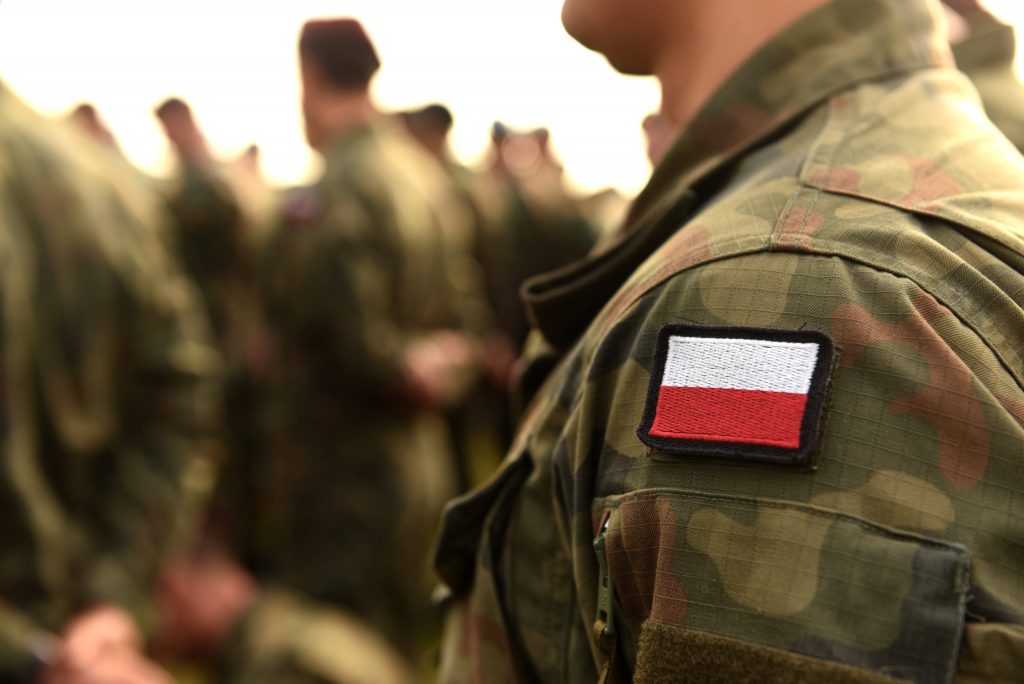Poland was recently in the midst of a crisis that threatened a direct confrontation between NATO and Russia: a missile launched by Ukrainian air defense, but manufactured by Russia, fell on its territory, killing two civilians. When the origin of the missile was not yet identified, the Zelenskyy government blamed it on the Russian army. The tension of these first hours provoked a fear of nuclear conflict among many journalists and observers. The escalation never materialized, but the incident highlights the geographical proximity of Poland, a country bordering Ukraine, to the military conflict currently tearing Eastern Europe apart.
Yet the Polish army is already one of the most powerful and best equipped in Europe: unlike a number of NATO members, Poland was allocating 2.4 percent of its GDP on military spending even before the war in Ukraine began. The Polish military has 150,000 soldiers — just 20,000 fewer than Germany — 30,000 of whom are in territorial defense units similar to the Ukrainian model. But Poland wants to go further, setting a goal of spending 5 percent of its GDP on the military and, as Defense Minister Mariusz Błaszczak promises, building “the largest land army in Europe” with 300,000 soldiers.
In its race to rearmament, Poland is relying heavily on artillery and armored troops, and the Ministry of Defense said it is relying on information shared by the Ukrainian army about the experience of defensive warfare in Ukraine. To do this, Poland is boosting orders for the national arms industry and placing orders with the United States and especially South Korea, with which it has a strategic partnership, Blaszczak explains.
Last spring, Warsaw signed a 4.9 billion euro purchase contract for 250 Abrams tanks and a 4.6 billion euro contract for 32 F-35 aircrafts with the United States. Poland intends to buy 10 to 12 billion dollars worth of weapons from Seoul: 180 K2 tanks, 200 K9 Thunder howitzers, 48 FA-50 aircraft and another 218 Chunmoo K239 rocket launchers. But that’s only the beginning: before the end of the decade, Korea must provide the country with 1,000 K2 tanks and 600 K9 howitzers.
As Politico notes, Poland’s ambitions for military hegemony in Europe will not immediately translate into political strength, as the state led by an ultra-nationalist PiS party (Law and Justice Party) remains a secondary force in the European Union for the time being. But Poland is part of a process of NATO rearmament that has been greatly accelerated by the war in Ukraine. NATO Secretary General Jens Stoltenberg has described this dynamic as “the biggest overhaul of our collective defense since the end of the Cold War.” More than 19 NATO members want to meet the military spending target of at least 2 percent of national GDP — a target that was set in the NATO agreements but has so far been poorly met by its member states.
The war in Ukraine has indeed given certain countries the opportunity to carry more weight on the global stage. Their governments are taking advantage of this new reality to strengthen themselves both internally and internationally. But Poland’s push toward rearmament is welcomed by the imperialist powers of NATO. Germany, for example, would benefit from an armed Poland, since it constitutes a geographical “buffer zone” between Germany and Russia. In Washington, this rearmament is also well received, as it fits in its strategy of arming its partners against its international rivals to avoid having to engage directly in wars with uncertain outcomes.
This shifting public spending, as part of a militaristic escalation, bodes ill for the working class, foreshadowing wars, cuts to public service, and national repression.
First published in French on December 21 in Révolution Permanente.
Translation by Emma Lee










